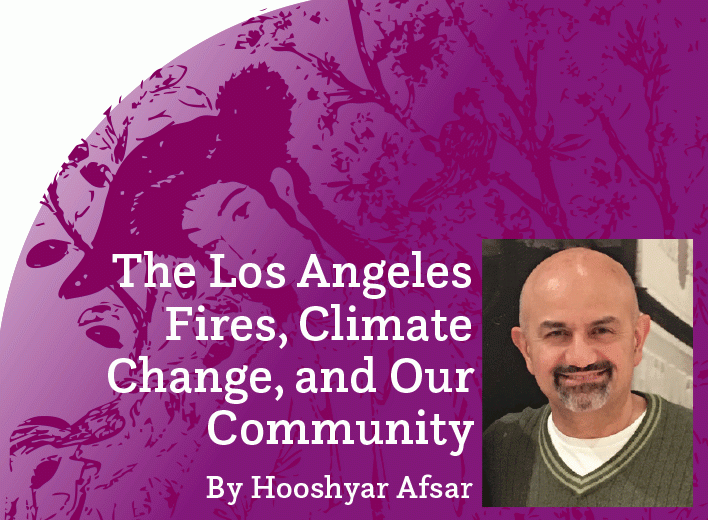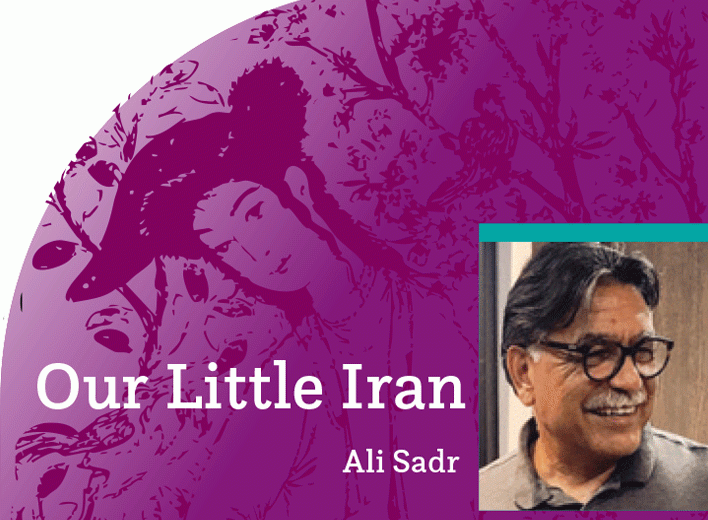There is a difference between facts and the truth. A fact is something that is indisputable because it can be objectively proven or disproven; for example, the print in this article is black. The truth is more expansive; it may contain facts, but is also an opinion or value judgment. For example, the print in this article is black, but the truth is, I prefer blue print. In an advanced modern democracy, facts should inform truth, not the other way around. Because without facts, “truth” is at the mercy of “anecdote, sentiment or prejudice” rather than information that can be validated.1

We used to get our facts from institutions and sources we trusted, such as newspapers, scientific and research studies, higher education establishments, network news, independent watchdog groups, and even governmental oversight committees. But trust in these pillar institutions has declined over a period of time, beginning to hit all-time lows around 20092. Instead, people are turning to proliferating cable news talk shows and all corners of the internet for information. As Sophia Rosenfeld, author of Democracy and Truth: A Short History, has stated, the internet “is particularly important because of its reach and because of the algorithmic way in which it promotes what’s popular rather than what’s true. It creates a culture of untruth, probably, that other forms of publishing can’t easily.”3 Journalist George Packer, writing in The Atlantic, sees the problem we face today as “too much information from too many sources, with a resulting plague of fragmentation and division—not excessive authority but its disappearance, which leaves ordinary people to work out the facts for themselves, at the mercy of their own prejudices and delusions.”4 Manipulative and ill-intentioned actors have played to these prejudices with wanton abandon, flooding the internet with their version of “truth,” telling people what to believe without first providing the facts. As such, facts are being lost, ignored, or relegated to the status of “opinion.”
The magnitude of the current fact versus truth divide—and its consequences—hit me like a ton of bricks on the night Donald Trump won the last election as president. Somewhere from the recesses of my memory I recalled the first line of George Orwell’s novel, 1984: “It was a bright cold day in April, and the clocks were striking thirteen.” The election had not been normal, the candidate was not normal, and now that he was president, nothing would be normal again. The feeling of surrealism that arrested me was not, as Trump supporters accused, a bad case of sour grapes or being a sore loser, it was the much scarier realization that the most prized underpinnings of our democracy—objective facts and the truth—had been vanquished by a force I was struggling to comprehend. A force of which Trump was merely a symptom.
I was not being naïve; all politicians can, and do, lie or strategically mislead. But the sheer quantity of proven lies and misinformation perpetrated by Trump, and his petulant doubling-down on them when confronted, was unprecedented even before the election. For example, he said Americans paid the highest taxes in the world. Official statistics readily showed this was not true. He said he opposed the Iraq war. Audio evidence proved he favored the invasion at the time. He spent time and money trying to persuade people that Barack Obama was born in Africa, and then he said Hillary Clinton started the rumor. Trump said he was popular among African Americans, and that 81% of white homicide victims were killed by black people. The polls showed he only had 7% support among African Americans and, according to PolitiFact, whites killed 82% of white homicide victims. The list goes on and on. Fact-checkers’ heads were spinning; they began working in real-time on TV during debates. Politico reported that 70% of Trump’s statements were “mostly false,” “false,” or “pants on fire.”1 One reporter said, “Trying to fact-check Trump feels like beating your hands against a stone wall until they bleed.”
Although, by contrast, 28% of Hillary Clinton’s statements were rated in the false range by Politico, Americans on the whole continued to believe Trump was more “honest and trustworthy” than Clinton.2
Hence my channeling of George Orwell on election night; words like “Doublethink” and “Newspeak” were popping back into my head, and I began to wonder if the type of post-truth “reality” we had all seen unfolding in the election was what Orwell had been warning us about. I revisited the book, this time awed by the author’s genius. I was not alone. Seventy-one years after its publication, copies of 1984 began flying off bookstore shelves and hit the best-seller lists. Like me, many of the 65,853,514 people in this country who did not vote for Trump were trying to make sense of what just happened.
Many have described the last four years as “Orwellian.” We have heard Trump say things with our own ears and seen him do things with our own eyes that he later denied saying or doing. We have witnessed him glibly dismissing facts out of hand through jingoistic retorts of “fake news,” without accounting for the contradictory evidence. White House “counselor” Kellyanne Conway’s “alternative facts” have kept on coming. The mode of communication for Trump’s “official” statements has been normalized into substance-less, word-limited Twitter rants. And yet, people who are our co-workers, family members, friends, and neighbors continue to believe him when he says things like, “What you’re seeing and what you’re reading is not what’s happening.” Cue Orwell: “The party told you to reject the evidence of your eyes and ears. It was their final, most essential command.” Whereas I had never grasped the poignancy of 1984’s protagonist Winston’s statement that, “Freedom is the freedom to say that two plus two make four,” I understand it all too well now.
While the problem goes beyond party politics, its proliferation is a direct result of right-wing conservative hawks having made better use of the current information chaos than moderates and liberals. Journalist David Roberts states, “The right not only commands the highest rated cable news network and an army of supportive online media outlets, it is spending millions on Facebook, Tik-Tok, 4chan, 8chan, and God knows what other online swamps [think Q-Anon], targeting messages where their audiences are rather than futilely attempting to reach them through the Washington Post.”5 Roberts’ observation aligns with a post-election Harvard study looking at the effects of online media on voters, and concluding, “The leading media on the right and left are rooted in different traditions and journalistic practices. On the conservative side, more attention was paid to pro-Trump, highly partisan media outlets. On the liberal side, by contrast, the center of gravity was made up largely of long-standing media organizations steeped in the traditions and practices of objective journalism.”6
Such use of partisan media by the right has led to what Roberts calls “tribal epistemology.”4 Epistemology, as he explains, “is the branch of philosophy that has to do with knowing and coming to know things — what counts as true, what counts as evidence, how we accumulate knowledge, and the like.” Conservatives have been able to cultivate and expand a propaganda machine that “mimic[s] the form of mainstream media, think tanks, and the academy, but [is] . . . designed to [exclusively] advance the interests of the right [the tribe], to tell stories and produce facts that support the tribe.” Critical thinking is, in this way, reduced to only accepting facts as true if they are “good for our tribe,” and being a part of the tribe “becomes the primary determinant of who to trust.”
We saw the mechanism of tribalism on full display during the impeachment hearings: “Anyone who says anything contrary to the tribe marks themselves as an enemy of the tribe . . .; enemies of the tribe cannot be trusted, so their testimony or evidence can be ignored. Thus, by definition, nothing that questions the tribal narrative can be trusted.”4 Having created this environment, all Trump and his supporters (Russia being a formidable example) have to do in the face of inconvenient facts is to flood the media with “an army of bots, trolls, and shitposters, to inject accusations, lies, and conspiracy theories into the public dialogue,” and simultaneously attack independent media outlets and others as enemies of the people.4
We need to understand what the conservatives already know; chaos is key, madness is method, when it comes to Trump and Trumpism. Roberts states the condition better than I ever could: “In an information fog filled with vexed uncertainty, people will either tune out, revert to their tribal affiliations, or both. They will seek a strong leader who offers simple certainties and a clear account of who is to blame for the chaos.”4
So back to my question: Will facts matter enough in this election to vote out Trump and, more importantly, Trumpism? A glimmer of hope lies in studies that show persistent fact-checking does have some impact on mis- or dis-informed voters. If the polls are to be trusted, Trump is trailing Biden in voter support. Perhaps the current pandemic has, itself, been the mother of all fact-checkers, the choice between life and death elbowing out the manipulations of anything in between, forcing enough voters to choose life over membership in the Trump tribe. No one can tell what the result will be, and many are braced for an Orwellian-style fight by Trump to stay in power should Biden win. One thing is for sure; the very survival of our democracy is at stake.
- https://www.theguardian.com/politics/2017/jan/19/crisis-of-statistics-big-data-democracy
- https://www.nbcnews.com/think/opinion/assessing-america-s-information-crisis-david-roberts-podcast-transcript-ncna943701
- https://www.newyorker.com/news/q-and-a/does-democracy-need-truth-a-conversation-with-the-historian-sophia-rosenfeld
- https://www.theatlantic.com/magazine/archive/2019/07/1984-george-orwell/590638/
- https://www.vox.com/policy-and-politics/2019/11/16/20964281/impeachment-hearings-trump-america-epistemic-crisis
- https://cyber.harvard.edu/publications/2017/08/mediacloud


















1 Comment
Reza Khabazian September 11, 2020 at 4:16 am
Beautifully written article.
Very informative for those who are accustomed to read, think, and learn.
Unfortunately those whom should read articles like this one mostly on Twitter looking for what Trump said to believe.
It is a sad era and truly the base of our democracy is at stake.
Thanks for writing such a beautiful essay.